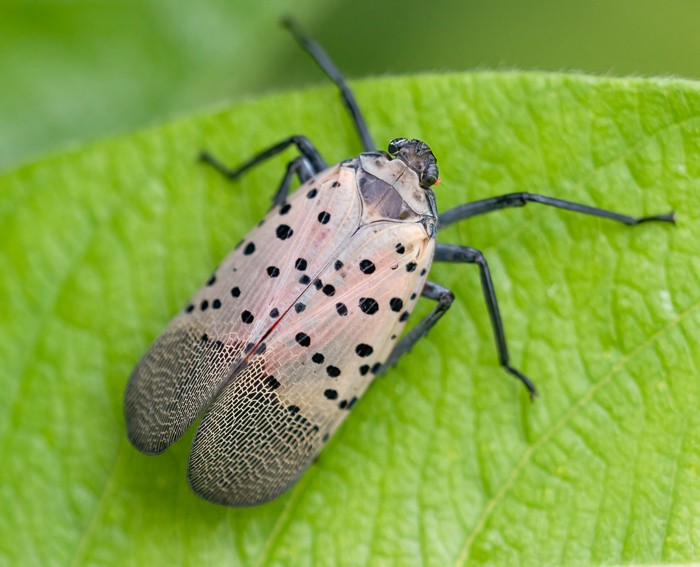
WCPO: UC expert warns to look out for lanternflies
Invasive species is showing up on Ohio trees
WCPO turned to a University of Cincinnati biologist to explain why homeowners should keep watch for an invasive insect that is showing up in the Midwest.
The spotted lanternfly was first observed in the United States in 2014. Today, it's found in 11 states, including Ohio. It feeds on fruiting trees, among others, and can cause extensive damage, according to the U.S. Department of Agriculture.
The insect is native to parts of Asia but has been introduced to several other countries around the world.

A spotted lanternfly. Photo/Walthery/Wikimedia Commons
Pennsylvania instituted a products quarantine across much of the state, requiring permitting for residents or businesses to transport landscaping, logs, grapevines, nursery stock and other items that could harbor insects in the affected counties.
UC associate professor Joshua Benoit told WCPO that some plants have better natural defenses than others to new insect threats.
"Usually when a new invasive pest shows up, what will happen is a lot of the plants here are adapted to fight them off," Benoit said. "And so you end up with a lot of jumping to new hosts and a lot more damage. They're not necessarily expecting it."
Anyone who sees a spotted lanternfly is advised to kill it and notify the Ohio Department of Agriculture.
Featured image at top: A spotted lanternfly. Photo/Rhododendrites/Wikimedia Commons

Students in UC associate professor Joshua Benoit's lab study insect physiology in species found around the world. Photo/Joseph Fuqua II/UC Creative + Brand
Related Stories
Spider’s visual trickery can fool AI
July 16, 2025
Jumping spiders so closely resemble wasps that their images fool artificial intelligence. Biologists say the mimicry might help males capture the attention of mates.
Cleveland agrees to pay $7.9M to estate of wrongfully convicted...
July 16, 2025
City officials in Cleveland have agreed to pay $7.9 million to settle a lawsuit filed by the estate of Isaiah Andrews, an exoneree of the Ohio Innocence Project at UC Law. Andrews, a man who served one of the longest prison sentences in history, gained his freedom in 2020 thanks to OIP's work.
Engineering graduate drafted by San Diego Padres
July 16, 2025
The Cincinnati Enquirer highlighted University of Cincinnati engineering graduate Kerrington Cross's journey to the major leagues. Waiting alongside hundreds of other baseball hopefuls, Kerrington Cross heard his name called on July 14. With the 220th overall pick in the Major League Baseball Draft, Cross is headed to the San Diego Padres.
